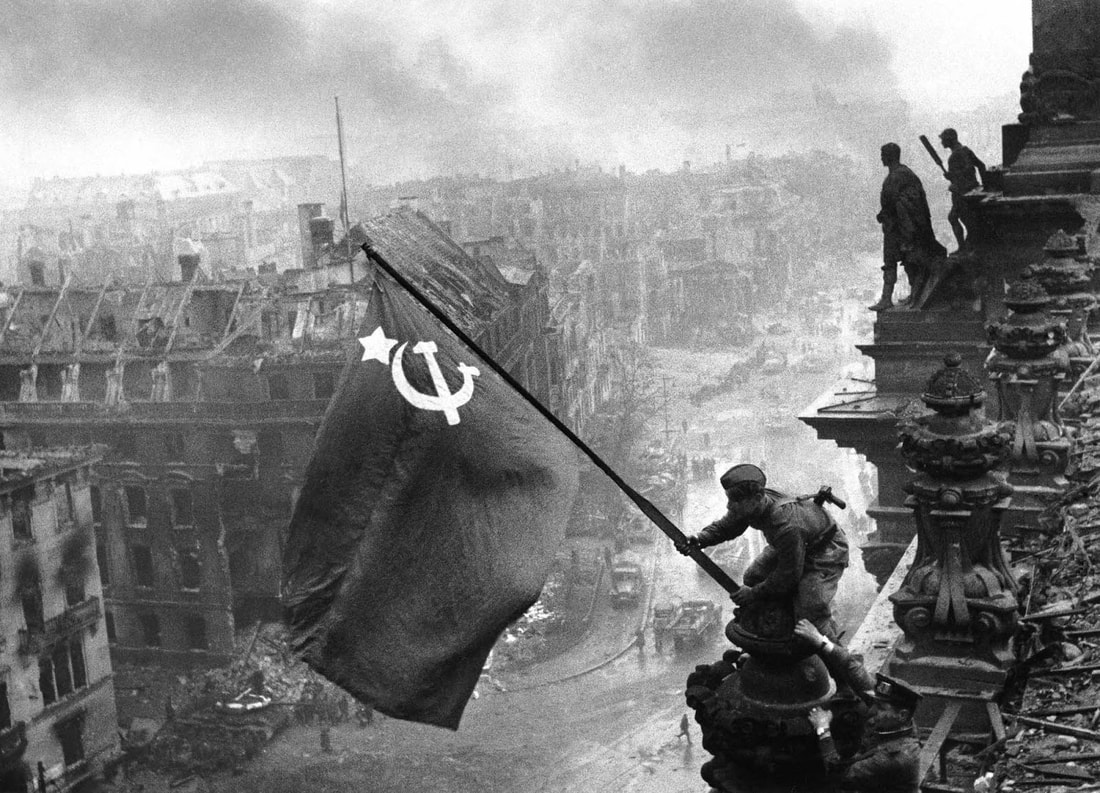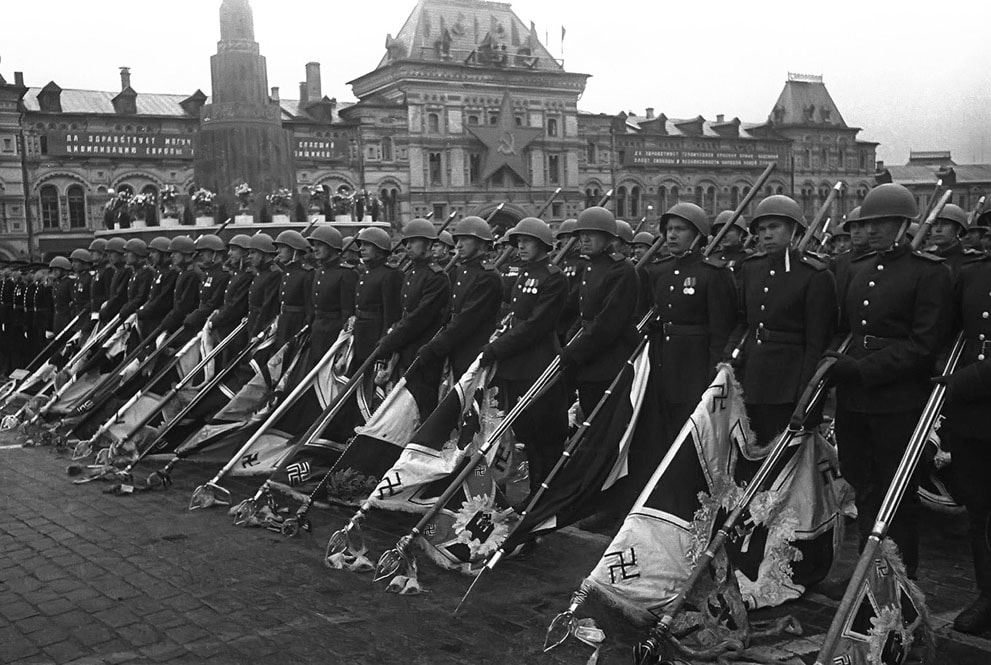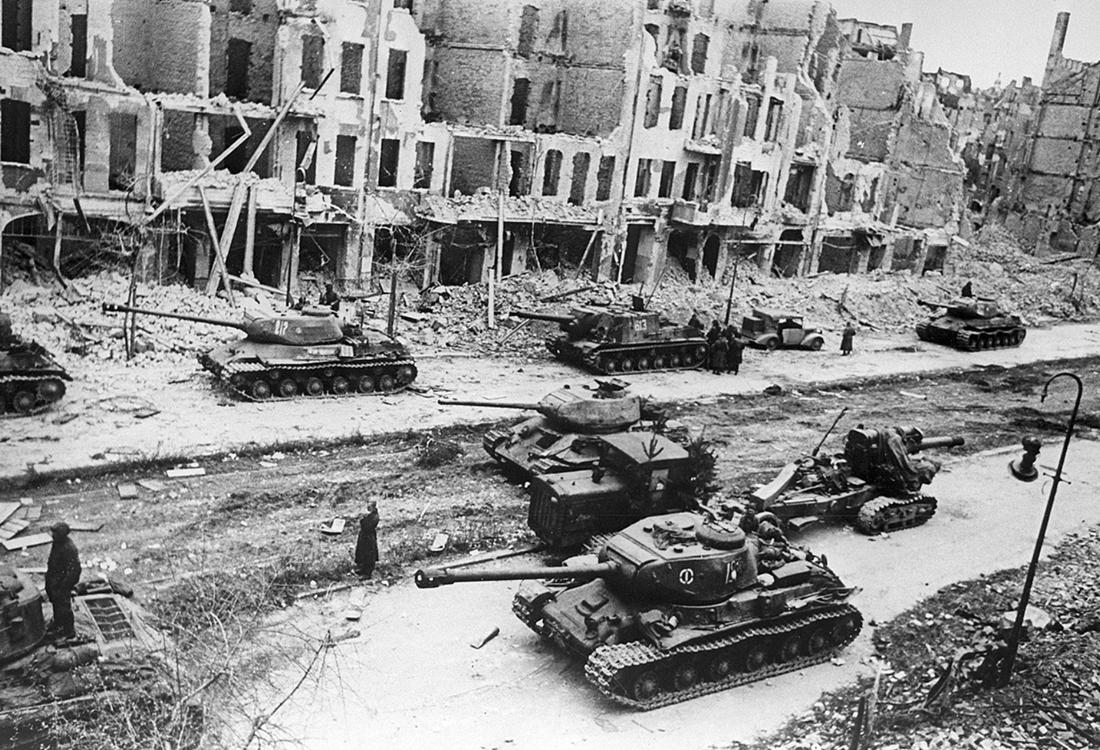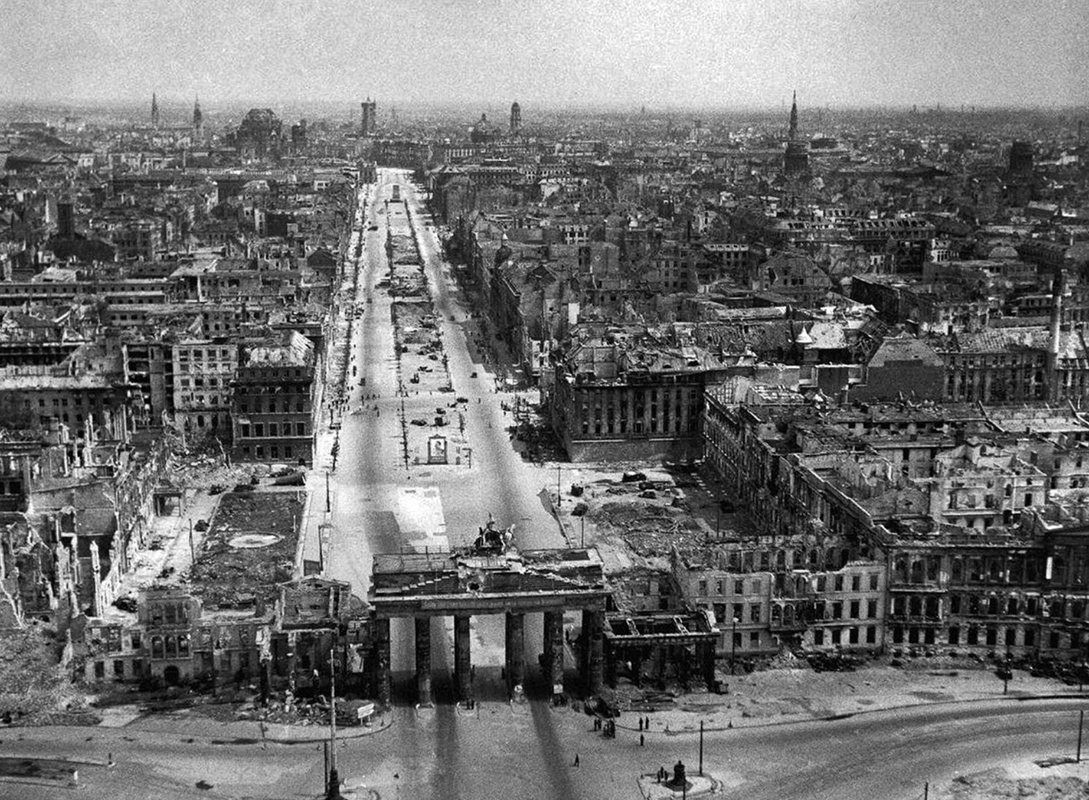|
I find it odd that The West doesn't talk about The Soviet Red Army winning WW2. The Red Army conquered the German capital, Berlin on 2 May 1945. Capturing the seat of power meant the defeat of the Nazis. In other words, by capturing the capital The Soviets won the war. It was to The Soviets Union represented by Gen. Vasily Chiukov that the Nazis unconditionally surrendered to. It could be argued that it was Gen. Dwight Eisenhower who demanded the unconditional surrender of the Germans in 7 May 1945 from Gen. Alfred Jodl and therefore The Americans won the war. I also could be argued that "victory" is more than capturing one city. It also means controlling the population, disarming the military, and compelling political changes. I would argue, that in World War 2 (The Great Patriotic War, as it's called in Russia) the capture of Berlin marked the defeat of the Germans. Berlin is the seat of power. With centralized governments, the fall of the seat of power marks the fall of the government and its grip on its nation. Thus, capturing Berlin meant the end of the Nazi regime. The Soviet army also paid the ultimate price for this victory. With 95% of the military casualties of the three major powers of the Grand Alliance. Some estimates as high as 25,000,000 deaths, 11,000,000 of which are military deaths. That is six zeros, millions. Compared to 418,500 US deaths and 450,900 British deaths. 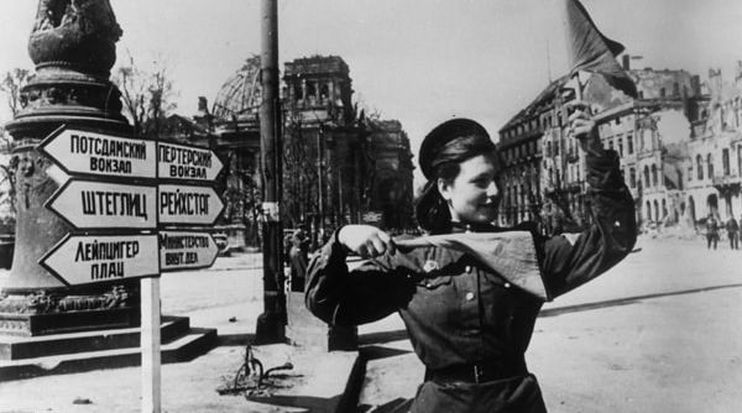 Postwar Berlin (1945): After the chaos of the last days of war, Soviet military authorities brought the first signs of public order to the destroyed city of Berlin. Here, a member of the Red Army directs light traffic on Ebertstraße. The ruins of the Reichstag, with its destroyed dome, can be seen in the left background. (photo: Bildarchiv Preußischer Kulturbesitz) You could argue, that western generals are just more efficient. But I think not. There were already 5,000,000 Soviet deaths by 1943 due to Nazi advance on The Soviet Union. Hitler, in his bunker, was also warned by his officers that The Soviet Red Army was only a day or so from overtaking the city. Hitler committed suicide on 30 April 1945; it was at the same date that The Soviets launched their attack on the Reichstag. Hitler dying meant also the death of The Nazis. Centralizing power on one man is never a good idea. With his death marks the death of everything that springs forth from his authority and power. I would argue, that Hitler wouldn't have killed himself if Berlin wasn't falling. It's not a coincidence that Hitler killed himself on the same day that The Red Army began their attack on the Reichstag. SOURCES:
https://en.wikipedia.org/wiki/Battle_of_Berlin https://en.wikipedia.org/wiki/World_War_II_casualties https://en.wikipedia.org/wiki/Death_of_Adolf_Hitler https://www.washingtonpost.com/news https://www.secondworldwarhistory.com https://www.history.com/this-day-in-history https://www.rbth.com/arts/history/2017
0 Comments
Leave a Reply. |

